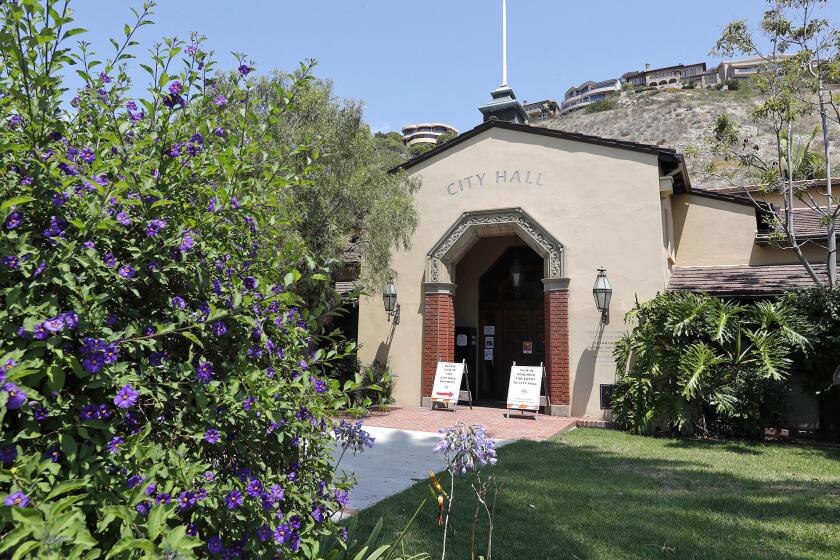A little love in, a little love out
- Share via
I don’t know that this is a map for Middle East peace, but maybe
it’s a piece of it.
I’m pretty American. I grew up and lived the majority of my life
in America. In America, I learned how and how not to relate to
people. I’m not an expert, but I think I have something of a handle
on some important relational issues.
But when I came to Gaza about a year and a half ago, I was taken
aback by some of the things I saw. I shelved the boundaries that I
had learned in America and tried to experience the level of
relationship that I felt among the Gazans.
I felt kind of like Solomon, who says in the book of Ecclesiastes
that he tried all the pleasures, all the while holding on to his
wisdom. I didn’t try all the pleasures and I certainly don’t have all
the wisdom, but I did find some things that I really liked about Gaza
that I hope I can keep if I’m not here.
In America, I learned that friendships go so far and no further.
We draw the lines and place the limits according to what we consider
to be proper.
Here, in Gaza, I didn’t find relationships so well delineated. It
was confusing at first. But I saw something in it, a level of
intimacy between people, that I didn’t see enough of in America.
It’s too early to sum it up, but I will anyway: In America, I felt
like we have the rules and boundaries, but we lost a lot of the
intimacy. In Gaza, I found they don’t have as many rules and
boundaries, but they have more intimacy.
When there are no rules and boundaries, everyone gets involved in
everyone else’s business and it drives everyone crazy. But when too
many rules and boundaries exist, people don’t even know their
next-door neighbors.
Both are needed. We need to learn the level of intimacy they
enjoy, but they need to learn the rules and boundaries that we
discovered can protect ourselves and our friends.
Before I veer off into too much “Arabized” pop-psychology, I
wanted to give an example.
I’m usually irritable when people make demands on me. There was a
friend one day who came over. He comes over regularly. He asked me,
totally nonchalantly, if I could get him a glass of cold water.
I wanted to tell him he knew where the refrigerator was and he
could get it himself. Instead, I got up and got the water for him. He
looked at the glass to make sure it was clean. By then, I was ready
to take the glass of water and pour it on his head.
But then he asked if I had any bread. I didn’t.
He said he’d go downstairs and get some at the neighborhood
market. I watched him from my fourth-story balcony. He went down and
into the store and came out without any bread. Without a second
thought, he got on his rusting red bicycle and headed down toward the
supermarket that’s about half a mile away.
He returned a while later with the bread.
What I saw, which I’ve seen over and over again, is that my
friends here often expect much, more than I am sometimes comfortable
giving. But at the same time, they give much without a second
thought. Every single foreigner I’ve ever known to come to Gaza has
been overwhelmed by the hospitality here.
Another time, I was about to enter a taxi. I’ve been ripped off by
enough taxi drivers to be really cautious. I asked the driver how
much it would cost to get to a certain location. He said 30 shekels.
I said I only had 20 with me. He said “Itla.”
The meanings of words differ from place to place in the Middle
East. In the village where I lived and learned Arabic, “Itla” means
get out. So I started to get out.
“Itla,” he yelled again.
“I’m getting out,” I said.
“Itla,” he repeated. I was already out of the car and didn’t
understand why he kept repeating himself.
But then he changed his word to “T’all,” which means come.
In Gaza, to him “Itla” meant “Get in.” And he went on to tell me
that he would take me where I needed to go even if I had no money at
all.
“Ayooni,” he said, which means “My eyes” -- a common saying
indicating that he would be willing to give even his eyes if I had
asked.
Had I seen this kind of behavior once or twice, I wouldn’t have
bothered to write this. But I see it everywhere, again and again.
It kind of helped me to redraw my boundaries a little. Not too
much because those boundaries are necessary to protect myself and my
friends, but enough to allow a little more love in and a little more
love out.
* HUSEIN MASHNI is a former reporter for the Daily Pilot who
covered education. He left to do mission work in the Middle East and
writes us occasionally about his experiences.
All the latest on Orange County from Orange County.
Get our free TimesOC newsletter.
You may occasionally receive promotional content from the Daily Pilot.








